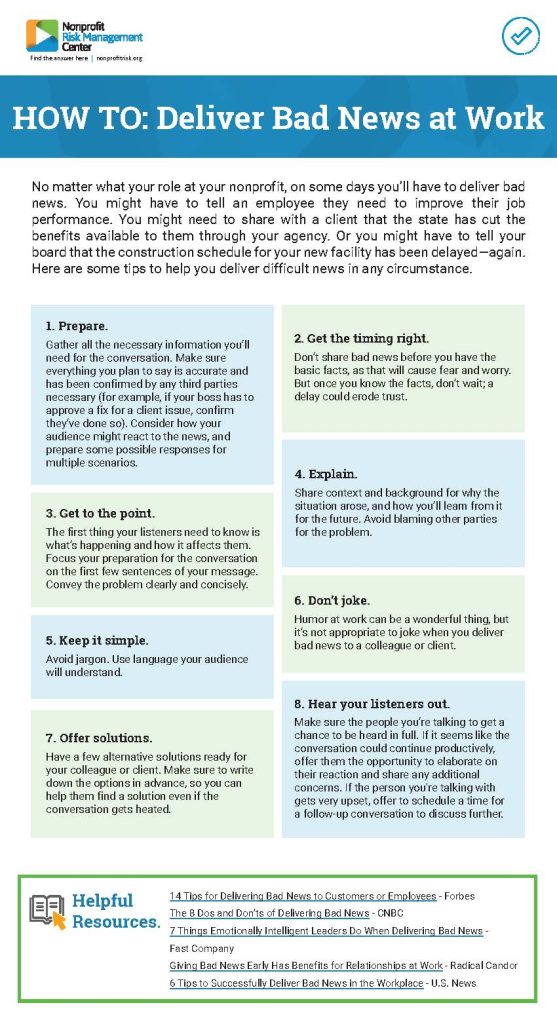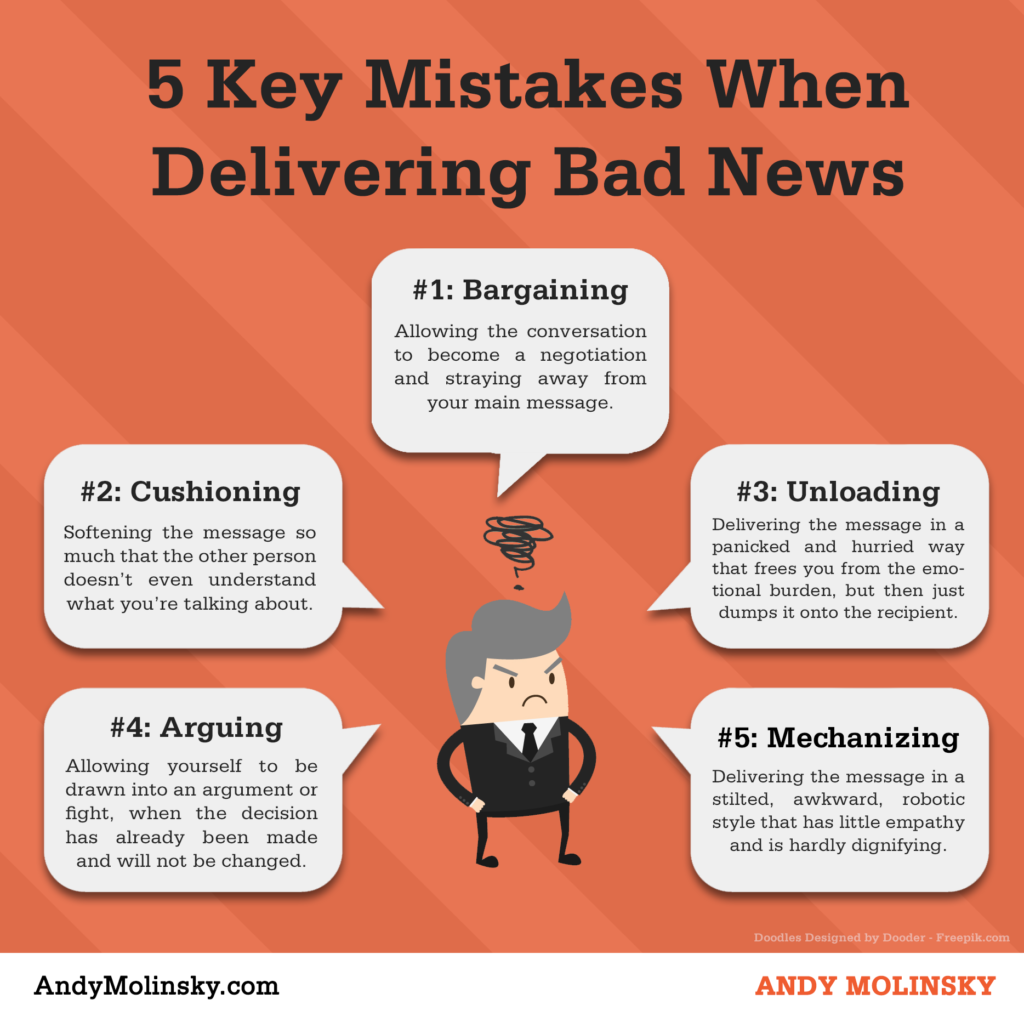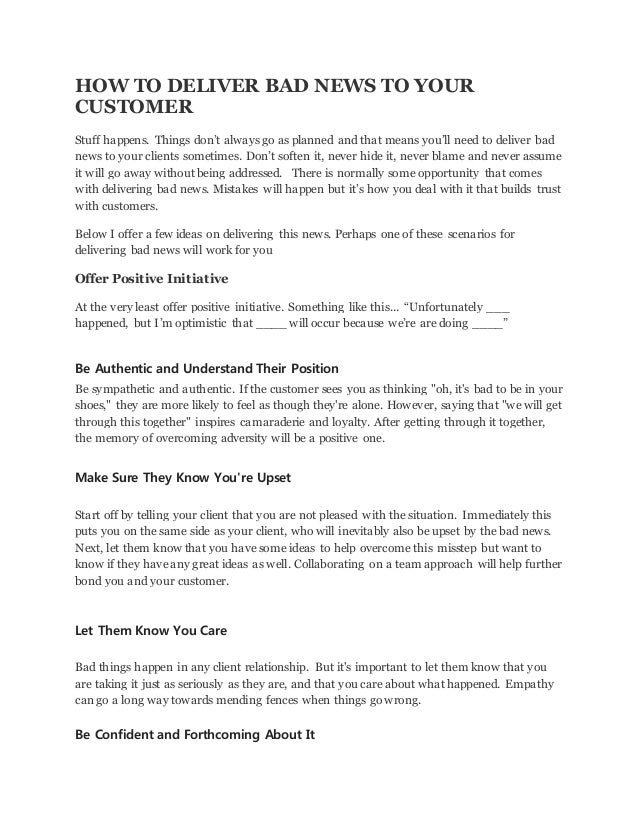How To Deliver Bad News To Clients

Delivering bad news to clients is an unavoidable, yet often dreaded, aspect of business. Whether it's project delays, budget overruns, or service disruptions, the way this news is communicated can significantly impact client relationships and future business prospects.
Mastering the art of delivering unwelcome information is crucial for maintaining trust and minimizing potential damage. This article explores effective strategies for navigating these challenging conversations.
The Importance of Preparation and Planning
Before delivering any bad news, thorough preparation is paramount. Understanding the details of the situation, including the why behind the issue, is the first step.
Gather all relevant facts and data to support your explanation. Anticipate potential questions and prepare clear, concise answers.
Consider the client's perspective and how the news will likely affect them. Choose the appropriate communication channel based on the severity and complexity of the news. A phone call or in-person meeting is often preferable for sensitive or complex situations.
Key Principles for Delivering the Message
Transparency and honesty are essential. Avoid sugarcoating or downplaying the situation, as this can erode trust and create further complications down the line.
Start with empathy. Acknowledge the client's potential disappointment or frustration. Using phrases like, "I understand this is not the news you were hoping for," can demonstrate understanding and soften the blow.
Clearly state the bad news upfront, but avoid being abrupt. Provide context and explain the reasons behind the issue in a straightforward and easy-to-understand manner.
Focus on what can be done to mitigate the impact of the bad news. Offer solutions and alternative options, demonstrating a proactive approach to resolving the issue.
According to a study by the Harvard Business Review, clients are more likely to forgive mistakes when they perceive that the company is taking ownership and actively working towards a solution.
Communication Strategies
Use a calm and professional tone throughout the conversation. Avoid getting defensive or blaming others.
Actively listen to the client's concerns and address them directly. Allow them to express their emotions and ask questions.
Document all communications, including the date, time, participants, and key points discussed. This can be helpful for future reference and to prevent misunderstandings.
Follow up after the initial conversation to check in with the client and provide updates on the situation. This shows continued commitment to resolving the issue and maintaining a positive relationship.
Handling Difficult Reactions
Be prepared for a range of reactions, including anger, frustration, and disappointment. Remain calm and professional, even if the client becomes emotional.
Allow the client to vent their feelings without interrupting. Avoid taking their reactions personally.
Empathize with their situation and acknowledge their feelings. Use phrases like, "I understand why you're upset," or "I can see how this is frustrating."
If the client becomes abusive or disrespectful, calmly reiterate the facts and express your willingness to find a solution. If the behavior persists, it may be necessary to end the conversation and reschedule for a later time.
"The key is to be honest, empathetic, and solution-oriented," says Dr. Anya Sharma, a communication expert. "Clients appreciate transparency, even when the news is bad."
The Long-Term Impact
Delivering bad news effectively can actually strengthen client relationships in the long run. By demonstrating honesty, empathy, and a commitment to finding solutions, businesses can build trust and loyalty.
Conversely, handling bad news poorly can damage client relationships and lead to lost business. It can also negatively impact a company's reputation.
Investing in training for employees on how to deliver bad news is essential for mitigating these risks.
Ultimately, delivering bad news to clients is an opportunity to demonstrate professionalism, build trust, and strengthen relationships. By following these strategies, businesses can navigate these challenging situations effectively and maintain positive client relationships, even in the face of adversity.


















